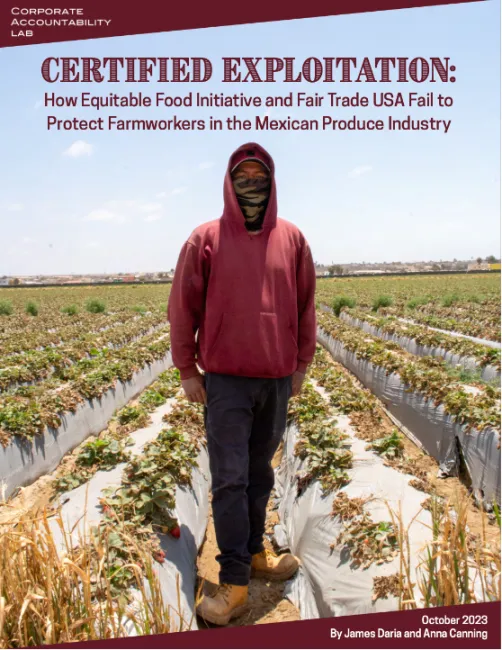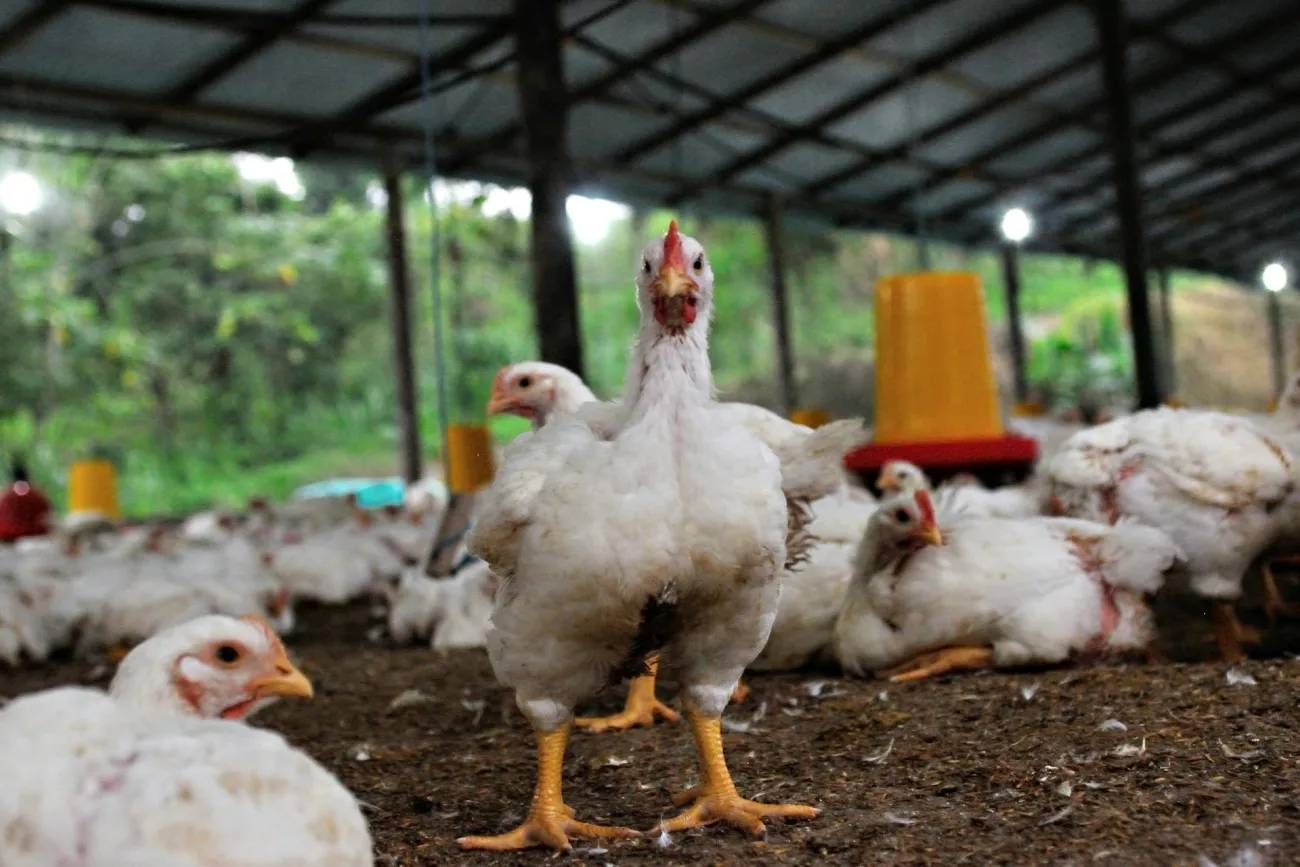This report from the Corporate Accountability Lab explores how American fair trade organisations protect the image of corporations more than the rights of their workers by analysing case studies on horticultural farms in Mexico.

This report outlines deep-rooted issues within transnational agricultural markets, ethical certifications, and farm labour rights, particularly focusing on the horticultural industry in San Quintín, Baja California, Mexico. After a large-scale protest of farm workers in 2015, cooperations promised improvements in the working conditions and workers rights by joining the ethical certification companies Equitable Food Initiative (EFI) and Fair Trade USA (FTUSA).
Now, products such as strawberries and tomatoes are being exported to the US under a fairtrade label, yet the main demands of the protesters have been barely met to this day. Systematic human rights violations such as forced labour, limited freedom of association and wage theft reveal the exploitation happening under the cover of an allegedly eco-social certification.
The report explores the shortcomings of both FTUSA and EFI standards, demonstrating how they fail to protect workers' rights and, in some cases, even lag behind Mexican labour laws. The authors finish on a statement calling out the power imbalances in the transnational agro- export industry and highlighting the need for a reform of the private regulations within the sector to ensure the protection of human rights.
Reference
Daria, J. and Canning A., 2023. Certified Exploitation. Corporate Accountability Lab. https://corpaccountabilitylab.org/certified-exploitation
Read the full report here and see more from us on Food Sovereignty, Food Security, and Conflicting Approaches to Food Problems and our explainer on What is food sovereignty?




Comments (0)